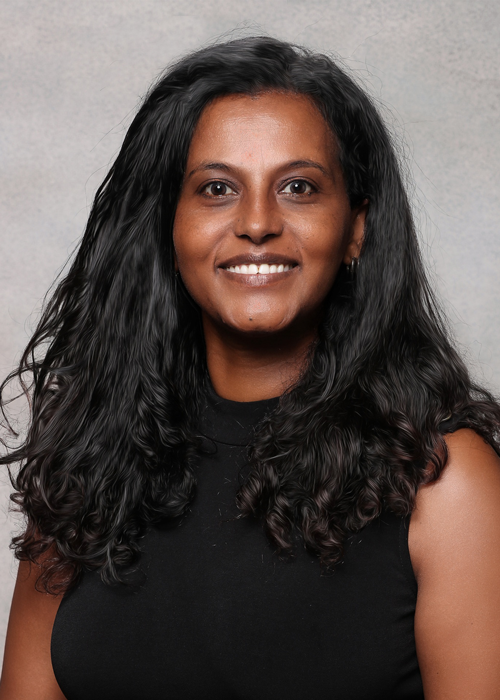
Dr. Waggy Zeleke
Director, The HEARTFUL Lab
Associate Professor
Phone: 804-205-0955
Email: zelekew@vcu.edu
The HEARTFUL lab focuses on exploring mental health, equity, and access, particularly for underserved and under-resourced communities affected by intergenerational trauma. It uses community-based action research to improve access to and quality of care for diverse, low-resource, and underserved populations such as immigrants neurologically diverse (e.g., Autism) affected by trauma-induced mental health issues.
Dr. Waggy Zeleke leads the lab in collaboration with colleagues, students, and research team members worldwide. She currently has research projects in the US and Ethiopia.
The Lab integrates several domains: psychology, mental health, community wellness, Compassionate Inquiry, Community-Based participatory approach, and culture and system model
Our research team aims to advance culturally and contextually responsive and integrated approaches in the context of trauma-informed psychotherapeutic care for underserved populations, including immigrant children with autism.
This research addresses access to and utilizing care issues in two main ways:
We aim to serve at-risk and underrecognized groups, such as those who have been exposed to historical trauma, intergenerational trauma, interpersonal traumas, have disabling life experiences, and/or may be experiencing psychosociocultural oppression.
The HEARTFUL Lab is currently accepting applications for volunteers, undergraduate and graduate research assistants throughout the year. If you are interested in joining our lab, please complete the HEARTFUL Lab interest form to help us learn more about you.

Director, The HEARTFUL Lab
Associate Professor
Phone: 804-205-0955
Email: zelekew@vcu.edu
This study focuses on first-generation college students at VCU, testing the effectiveness of a telehealth mindfulness group in reducing imposter syndrome, fostering self-compassion, and boosting academic confidence.
This project is a multi-study research initiative that explores how displaced communities experience, understand, and heal from trauma in culturally meaningful ways. Using community-based participatory action research (CBPAR), the project engages internally displaced persons, community leaders, and service providers as co-researchers to uncover lived experiences of collective trauma and the cultural strengths that support healing. This approach ensures that the voices of those most affected directly guide both the research process and the design of interventions.
Building on these insights, the project includes two additional studies: an assessment of culturally responsive trauma interventions and a pre-post evaluation of Narrative Exposure Group Therapy. Together, these studies examine how cultural traditions, spiritual practices, and community relationships can be integrated with evidence-based methods to create practical, sustainable approaches to healing. By bridging biological, psychological, and cultural perspectives, this work generates knowledge that not only advances the science of trauma recovery but also provides communities with practical, contextually grounded pathways to resilience.
This project is a large research study that uses existing data from the Simons Foundation Autism Research Initiative (SFARI), one of the world’s leading resources on autism. By analyzing secondary data from more than 25,000 individuals—including many from immigrant and underrepresented communities—the project combines genetic information with details about family life, culture, and community. Using advanced analytic tools, it examines how biology and environment work together to influence resilience, mental health, and everyday outcomes for people with autism. By focusing on diversity and context, this project fills significant gaps in autism research and provides valuable insights that can lead to more inclusive and culturally responsive support for individuals and their families.
This project explores how immigrant youth with autism access and use services as they transition into adulthood. We combine a detailed landscape analysis with targeted interventions for parents and service providers to improve service navigation, cultural responsiveness, and long-term outcomes.
We are currently seeking participants to take part in a 60-minute virtual interview and brief survey. Are you
2025
2024
2023
2022
2021
2020
2019
2018
2017
2016
2015
Jihad Torky
Past Master's Research Student
torkyjm@vcu.edu
Jihad Torky is a recent graduate of the Virginia Commonwealth University in the Rehabilitation and Mental Health Counseling Program. She was also a Counseling Intern at YWCA Richmond working with survivors of domestic and sexual violence. Jihad believes that mental health support is a vital factor for social change and justice, and intends to apply this in their professional work. Topics of interest include trauma (including intergenerational trauma), abuse and neglect, development, as well as racial trauma and liberation. Her interests focus on children and adolescents, parents, marginalized and minoritized communities, as well as immigrants and children of immigrants.
Sunday Wright
Past Undergraduate Research Assistant
wrightsl2@vcu.edu
Sunday Wright is an undergraduate student at Virginia Commonwealth University. She is a dual degree student majoring in biology and bioinformatics with a concentration in biological/genomic sciences and a double minor in chemistry and psychology on a research and thesis track. She serves on executive boards for four different student organizations and is a Resident Assistant on campus. She actively engages in various research on campus through the East Marshall Street Well Project in the Health and Humanities Lab and Team RIA in the Department of Epidemiology. Post-graduation, she plans to pursue graduate education with the hope of continuing to help marginalized communities.